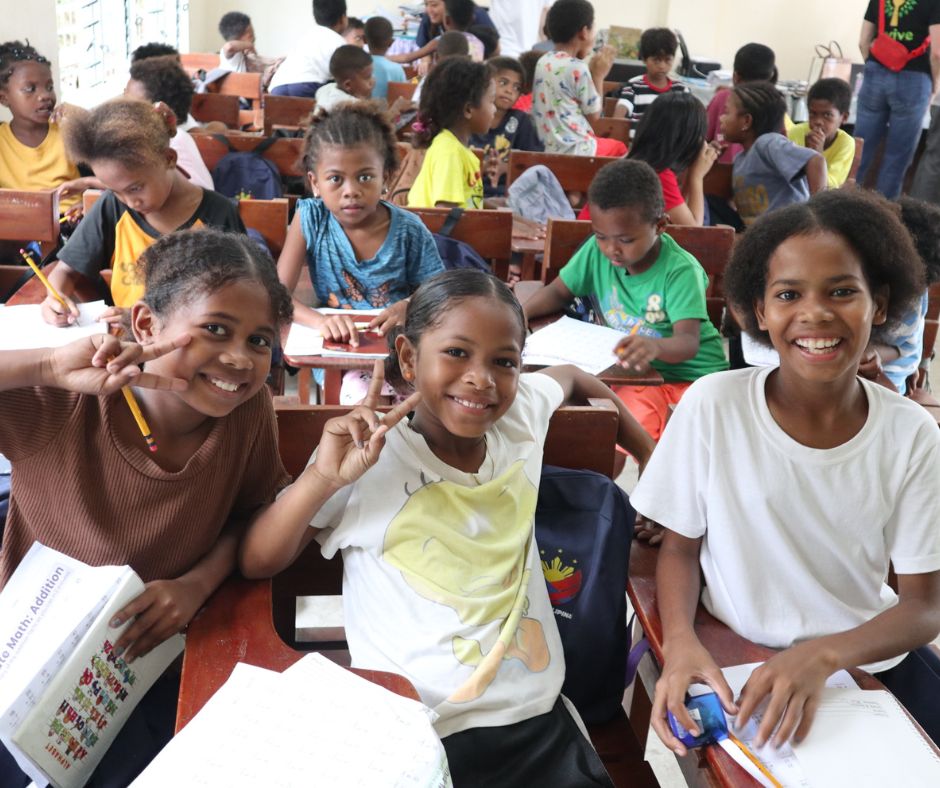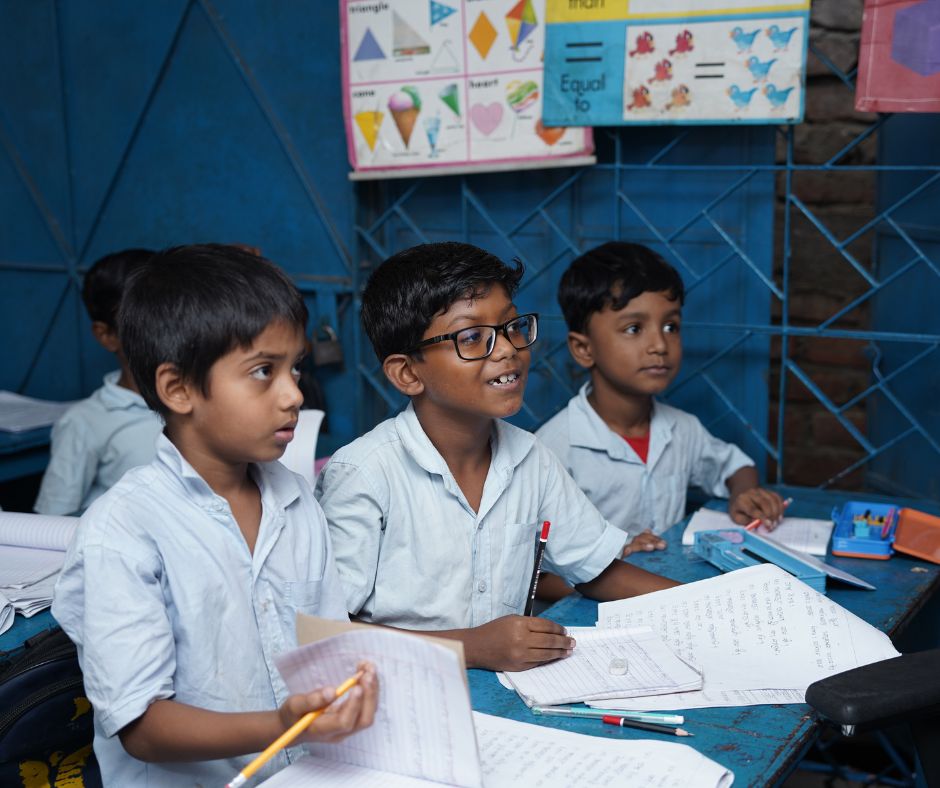Key Facts
- Teachers in Bangladesh and the Philippines report that daily school meals improve attention, participation, and attendance among their students.
- When children come to school well-fed, teachers can focus more on teaching and less on managing fatigue or hunger-related distractions.
- School feeding programs support national education goals by improving learning outcomes and reducing dropout rates.
- In both countries, community and teacher involvement strengthens the success and sustainability of these programs.
- Globally, school meals are now seen as an essential part of quality education, not just a welfare measure.
Every October, as the world celebrates teachers, it is worth reflecting on the many invisible things that make great teaching possible. Beyond lesson plans and chalkboards, there is something far more basic yet powerful:; nutritious food. In classrooms across Bangladesh and the Philippines, teachers have long understood that a nutritious meal can change the entire learning experience.
 Daily school meals are not only about feeding students. They help create classrooms where teachers can actually teach. It is about making a space where students can concentrate, participate, and dream:; as “When the stomach is full, the mind opens.”
Daily school meals are not only about feeding students. They help create classrooms where teachers can actually teach. It is about making a space where students can concentrate, participate, and dream:; as “When the stomach is full, the mind opens.”
Research has consistently shown that hunger interferes with learning. According to the World Food Programme’s School Feeding publication, students who receive daily meals demonstrate better attendance and improved test scores. Teachers often see the difference firsthand — students arrive on time, stay engaged longer, and have the energy to complete their lessons.
A report by UNICEF highlights that proper nourishment does not simply affect physical health; it supports cognitive function, emotional stability, and classroom behavior. When students are nourished, teachers can focus more on teaching instead of calming tired or distracted learners.
These benefits ripple outward. Teachers report fewer dropouts, fewer sick days, and more motivated students. In Bangladesh and the Philippines, these changes are transforming what classrooms look like, and how teachers experience their work.
In Bangladesh, daily school meals have become a powerful teaching tool. According to The Education Commission’s country study, teachers noted a dramatic shift in student focus and enthusiasm once daily school meal programs were introduced. Schools that once struggled with low attendance and early dropouts now report steadier participation rates.
A teacher quoted in the Dhaka Tribune described the change vividly: “Before, students came hungry and restless. Now, they are eager to learn. The classroom feels alive.”
The results are backed by data. The WJARR 2024 study found that school feeding initiatives helped increase enrollment and reduce dropout rates, particularly in rural areas of Bangladesh. Similarly, The Daily Star reports that providing hot meals made attending school enjoyable again for many children in the country.
Teachers also benefit from this. With improved student behavior and attendance, they can implement lesson plans more effectively and achieve better learning results. The Bangladesh School Meals Case Study notes that teachers now spend less time managing disruptions caused by hunger and more time engaging students in meaningful learning.
In the Philippines, teachers share similar stories. AThe World Food Programme Insight feature documented a teacher’s perspective, emphasizing how school feeding programs transformed not only her students’ health but also their academic confidence.
 Evidence from a school-based feeding assessment in the Philippines also shows that teachers play a key role in sustaining these initiatives. Many volunteer to oversee food distribution and monitor student progress. This involvement builds a stronger bond between educators, students, and their communities.
Evidence from a school-based feeding assessment in the Philippines also shows that teachers play a key role in sustaining these initiatives. Many volunteer to oversee food distribution and monitor student progress. This involvement builds a stronger bond between educators, students, and their communities.
One such teacher, Patricia May from Katutubo Village Elementary School, shared how Thrive’s feeding program has transformed attendance in their community:
“Some of our students used to stay in the mountains with their parents, so it was difficult for them to attend school regularly. With the help of Thrive, our students now come to class every day because of the meals provided. They’ve become more eager and consistent in their studies. We’re truly grateful, and I hope more people continue to support the children in our school.”
Teacher Patricia May’s story is similar to what educators in the Philippines experience. When children are nourished, they can show up to school and are ready to learn.
Studies back up Teacher Patricia May’s experience. According to the Philippines Development Studies (PIDS) report, teachers in schools with consistent feeding programs observed notable improvements in literacy and numeracy scores. Similar outcomes were noted in the GCNF country report, where teacher feedback emphasized the value of feeding programs in fostering equality, especially for students from food-insecure households.
For many educators, these programs also bring emotional rewards. As highlighted in the Philippines School Meals Coalition database, teachers see daily meals as a symbol of hope and opportunity. They witness firsthand how nourishment translates into confidence, curiosity, and resilience.
Globally, teachers are some of the strongest advocates for school feeding. Studies show that educators link well-fed students to improved classroom performance and emotional stability.
A ResearchGate study on teacher perceptions found that school feeding not only reduced absenteeism but also improved teacher morale. When students thrive, teachers thrive too.
During the COVID-19 pandemic, a study on teacher practices showed how educators adapted feeding programs to continue serving students, even during closures — further proving the strength of teacher commitment.
The connection between school meals and effective teaching is clear: one nourishes the body, the other the mind. In Bangladesh and the Philippines, teachers have become quiet champions of feeding programs because they see what data can not always capture; the spark in a student’s eyes when learning finally feels possible.
Daily meals are not charity; they are the foundation of education. As the UNICEF report: Ready to Learn and Thrive reminds us, education systems work best when students’ basic needs are met. Teachers know this instinctively.
So this October, as we celebrate teachers, join Thrive to celebrate and share the power of nourishment. A simple, shared meal can give both teachers and students the strength to build a better future.




